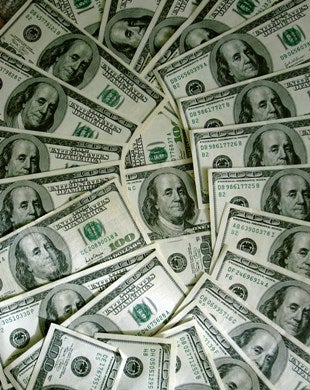In a weak economy, the government should not erect barriers to hiring. But two government policies have hindered the already slow recovery: increases in the minimum wage and government unionization. Eliminating these policies would not be enough to spur a robust recovery—the cause of our current economic weakness goes far beyond these measures—but removing them would help.
In a truly free market, each individual pursuing his or her own interest has the freedom to choose where to work. Likewise, each employer has the freedom to decide whom to hire. Overall, people will work at jobs they believe offer a commensurate wage for their labor, and employers will hire workers who offer them commensurate labor for their wages. If either is dissatisfied, then the employee will find a new job and the employer will hire someone else, until both are satisfied.
In this scenario, wages and prices are flexible according to changes in supply and demand, meaning that prices and wages would immediately adjust to drops in output during recessions, so that recessions would be very short-lived.
Of course, we don’t operate in a completely free market. Instead, prices and wages can take time to adjust to changing conditions. Government interference contributes to this “stickiness.”
Consider the minimum wage, which is a price control on one’s labor. If an individual’s labor produces $5.50 an hour in value for an employer, but the minimum wage is $7.25 an hour, the employer will not hire that person. In a recession, the minimum wage can be particularly damaging. When employers experience serious financial loss and need to cut wages as a result, if they can’t reduce wages below the minimum wage, they are forced to lay off employees. In fact, the minimum wage is most harmful to low-income earners with low productivity. It often prices them out of the market. Why should government say no to someone who wants to work for $5.50 an hour and to an employer who wants to hire him? That job experience will make the worker more productive and enable him or her to earn more in the future—more than two-thirds of minimum-wage workers earn a raise within one year.
Of course, the minimum wage affects a small portion of all U.S. workers. It is not the main reason unemployment remains so high. Still, reversing the recent 40 percent increase in the minimum wage would help low-income workers find jobs—particularly teenagers, whose unemployment rate is currently three times the national rate.
Government unions are a somewhat different form of price control: Government workers’ salaries are not dependent upon supply and demand forces of the free market. Rather, government unions can bargain to increase wages, and their wage contracts are almost always multi-year, meaning that regardless of economic conditions, their wages are locked in. This has a number of consequences.
One of those consequences, as with the minimum wage, is that salaries for government unions price people out of employment, particularly low-income earners. When state and local governments must cut costs but cannot reduce wage rates or benefit levels, their only alternative is to lay off employees. In Florida, Miami-Dade County will have to lay of hundreds of police officers, because their government unions rejected higher contributions for health coverage. States like Wisconsin that have reduced the power of government unions have been able to minimize such job losses.
The minimum wage and government unionization contribute to a slower than necessary recovery, as they distort natural pricing mechanisms. These issues are far from our worst roadblocks to recovery, but removing any barrier to growth provides more breathing room for the economy, and given our current growth rates, even small improvements would help.
